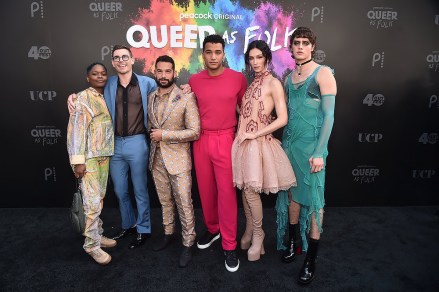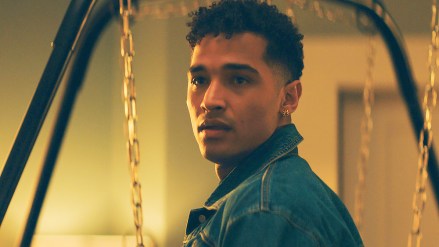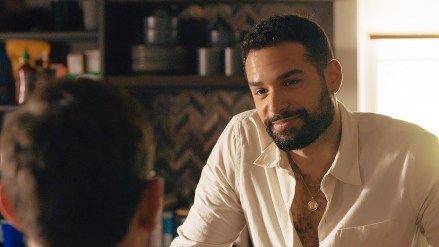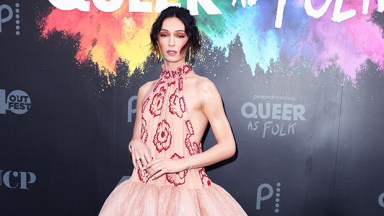
For Jesse James Keitel, Queer As Folk instantly “felt like home” to her. The 28-year-old stars as Ruthie in the Peacock revival series, a trans woman still trying to figure out what she really wants in life and experiencing all the highs and lows of that journey. Ruthie’s life is messy and complicated — and that’s exactly what intrigued Jesse about her character.
HollywoodLife spoke EXCLUSIVELY with Jesse about Ruthie not quite “being ready” for the life she wants and “stumbling into motherhood.” She also discussed embracing the queer culture in New Orleans and bonding with her castmates. For Jesse, a trans woman, and the cast, this show arrived at “really pivotal moments in their own self-discovery of their queerness.” Read our full Q&A below:
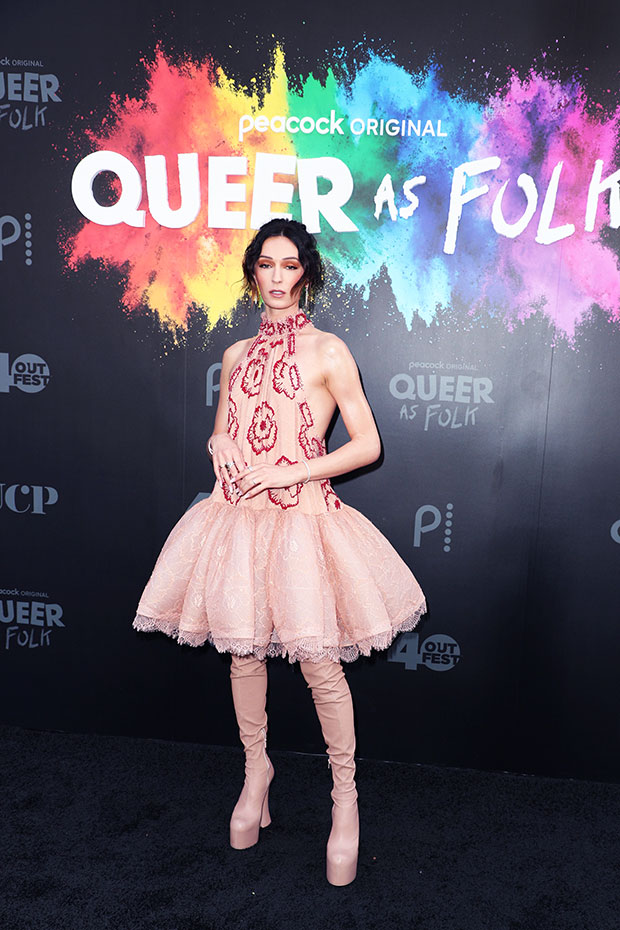
Did you audition for the role of Ruthie? Or was this role brought to you? What was the process like for you?
Jesse James Keitel: It was actually an incredibly quick process. I was in the final days about to close a deal for Big Sky season 2. This came along and we had to act fast. I basically booked it the next day after sending in a self-tape, and I had a tough decision to make. I really loved my time on Big Sky and instantly this project just felt like home. It was a quick decision.
What intrigued you the most about the role of Ruthie? What did you feel was maybe challenging for you with this role?
Jesse James Keitel: Ruthie has a line in the first episode that’s something to the effect of, “You can be trans and toxic. It’s called intersectionality, b*tch.” That’s the part of Ruthie that drew me to the character. She’s messy. She makes mistakes. She’s not quite ready for the life she wants. It’s so refreshing to see queer characters surrounded by other queer characters on a show that the fabric of the show is inherently queer from front to back. It’s made by queer people from a lived experience that I can relate to, so those were all things that I was excited about. I’ve never worked on a project like that before, and I don’t know if there have really been projects with this many queer people involved all around. I think the parts that are challenging with Ruthie specifically is how annoyingly similar she is to me in a lot of ways, and it’s kind of unpacking that like, okay, I would react like this in this situation, too. But we are very different. Ruthie definitely weaponizes her ability to manipulate more than I do, but she is so charming and just this effortless cool girl that I love. I’ve tried to bring a little bit more of that into my life playing Ruthie.
Just as an actor, what was the transition like moving from a show like Big Sky to Queer As Folk?
Jesse James Keitel: It was definitely a transition. Big Sky moves super, super quickly. Network television has a lot of deadlines. You’ve got to act on the line. I think I needed an opportunity to breathe and Queer as Folk afforded me that. It gave me time to sit in my queerness. It gave me time to sit in a new city that I love — New Orleans — and really just breathe in this character, breathe in these people, and have a lot of time for self-reflection that I think I desperately needed.
Ruthie is undergoing some major life changes in the series with the arrival of twins. How is she handling this shift in her life?
Jesse James Keitel: I think one of the most exciting parts of the series is Ruthie’s journey stumbling into motherhood. I think it’s really refreshing to see a character who’s maybe not ready to be a parent. She’s resisting the things she needs to do. The things she wants in life she’s resistant to it. I think a cool part of her journey, especially early on in the series, is kind of watching her be a bad mom and overcome that and become more excited about parenthood.
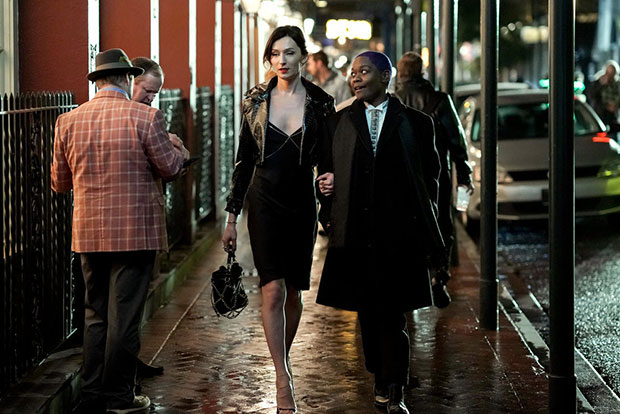
How does this impact her relationship with Shar?
Jesse James Keitel: Shar is very ready to be a parent, and Ruthie kind of made a little bit of a flippant decision by saying, “Sure. Let’s do it. I love you, and I want you to be happy.” So I think in a surprisingly selfless act of agreeing to a parenthood partnership with Shar, Ruthie probably betrayed a little bit of what she needed herself. At least what she wanted. After the tragedy in the first episode, it rocks her world. Her best friend Brodie, who may or may not be a bad influence, comes back into her life. There’s a dramatic change in Ruthie from early in the show to the second episode. She’s really kind of putting herself before anyone else.
Speaking of Brodie, he does come back to New Orleans. What is the relationship like between Brodie and Ruthie when he comes back to town?
Jesse James Keitel: It’s 50 shades of chaotic. I absolutely adore that friendship. Minus the toxicity, it very much mimics the friendship I have with Devin [Way] in real life. It’s so much fun getting to play that dynamic. They are just two balls of this messy, fun, vibrant, sexy, silly energy. It’s so cool getting to play with a messy adult relationship.
Without giving too much away, what can you say about their past with each other?
Jesse James Keitel: They know each other better than anyone else, and I think they are most themselves when that relationship gets to shine.
Does the show leave it open for a second season?
Jesse James Keitel: I think viewers will be itching for a second, third, fourth, and beyond.
You all spent a lot of time down in New Orleans? What was that like embracing that culture? I didn’t realize they had such a big queer community down there.
Jesse James Keitel: Honestly, I didn’t know either. It was the type of queerness that made me feel most at home. New Orleans is a city with so much magic and truly just as much tragic. They always find a way to rebuild and really come together. There are festivals almost every weekend. There are parties nonstop, and so much of the culture is about celebrating, and the queer culture is no different. It celebrates community. They celebrate each other. We fepridelt so welcomed. The queer scene there, the drag queens who are integral to our show, welcomed us with open arms. I can’t wait to go back. I feel I lost a little bit of myself when I left.
The show is being released in June, which happens to be Pride Month. What does this Pride Month mean to you?
Jesse James Keitel: I often get asked, “What does Pride mean to me?” And I never really know how to answer that. I’ve been thinking about it a lot. It’s hard because right now we’re facing so many attacks as LGBT Americans. I just read this morning how Texas Republicans are trying to ban drag queens in the presence of minors. There’s just such fear around queer people, and there’s so much blatant hatred and bigotry coming out of the woodwork. It’s a harsh reality knowing it’s always been here. And within that, we have this month where corporations slap on a rainbow sticker, corporations who decades ago would shun queer people. That rainbow meant like, you can shop here, you’re safe here. Pride has changed, I think, for the better. I’m finding more and more of a larger sense of community through Pride. Whereas in the past, I think community meant like, where do I fit in? Whereas now for me it means where do we fit in? Where do we fit into the culture? Queer As Folk coming out now I think is more important than ever.
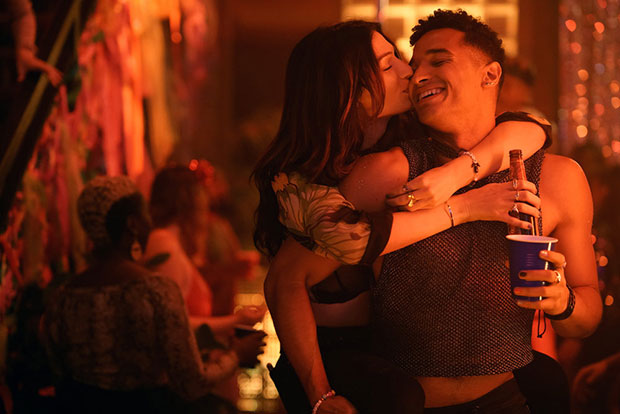
When speaking about community, you could feel it watching the show with this cast. The chemistry and synergy between you all is amazing. What was it like collaborating with this cast?
Jesse James Keitel: It’s magnetic because we became real friends. We became a real friend group. I remember seeing some really silly early criticisms of the casting of the show being like, “This friend group is too diverse. This isn’t real.” It’s a friend group that looks like my real-life friend group before the show. It’s queer without trying and, within that, we were all given a space to really thrive and find ourselves. I think we all left New Orleans knowing ourselves more than when we arrived and that shows onscreen. We were able to do that through each other. I think a lot of the cast, myself included, showed up at really pivotal moments in their own self-discovery of their queerness and their own self-acceptance and celebration of their queerness. Getting to do that together on-screen and off-screen bonded us in a way that I think shows through on the show.
